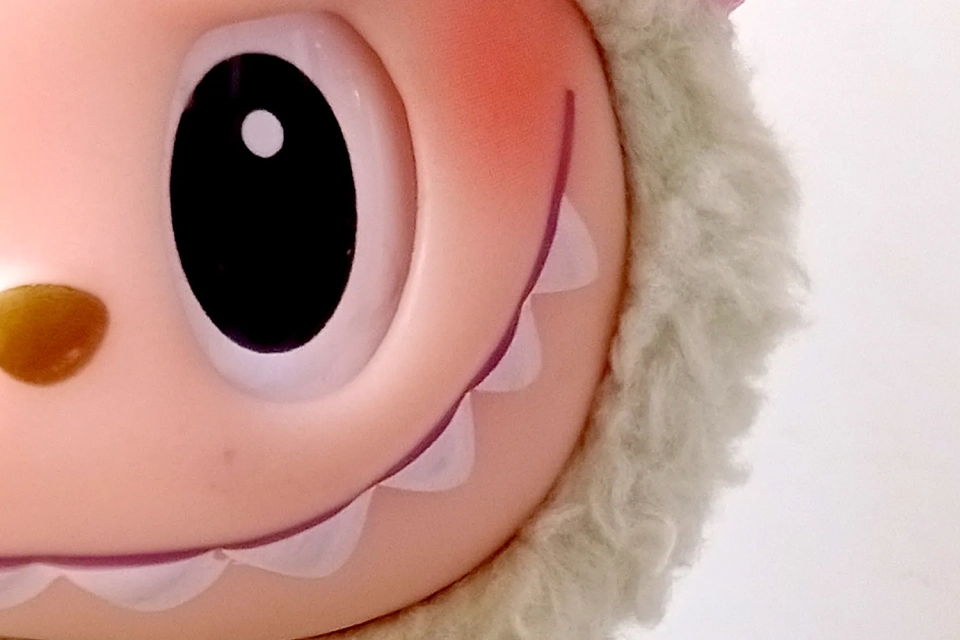Plush Power: How Labubu Dolls Became China's First Modern Cultural Export Sensation
October 13 may become a significant day in history when the world saw the "peak of Labubu." At an exhibition in Shanghai, dedicated to the tenth anniversary of this popular plush character, Apple CEO Tim Cook posed with an exclusive doll made in his signature style — a black turtleneck and glasses. "I will put it on my desk," he shared with China Daily.
The management of the Chinese company Pop Mart, which produces Labubu dolls, was likely thrilled by the sharp rise in stock prices. However, this success turned out to be short-lived. In Chinese social media, comments on Cook's enthusiasm were filled with irony: his toy was dubbed "Timbubu" and "Lakuku." In Western countries, support from the aging tech giant is perceived more as a "kiss of death" than as an incentive for sales growth, as noted by Foreign Policy.
Nevertheless, even if Labubu turns out to be a fleeting fad, like Pet Rock or Tamagotchi, it cannot be considered just another trendy toy. This character, with big eyes and a slight smile, has achieved what Chinese leaders have dreamed of for decades: organic penetration into Western culture. It can be argued that Labubu has become the first true manifestation of China's "soft power" in modern times. Its viral popularity in Europe and the USA is the success that Chinese officials have long sought but failed to achieve.
The Search for "Soft Power"
For many years, Chinese research centers and universities have viewed the concept of soft power as a complex problem requiring a solution. They studied Joseph Nye's theories, dissected the formulas for Hollywood film success, and analyzed the influence of K-pop on global culture. However, the results turned out to be rather predictable and weak.
Confucius Institutes, established to promote the Chinese language and culture, became objects of suspicion and accusations of political influence. State-funded film projects with millions of dollars ended up failing in Western markets. The only significant cultural export from China — TikTok — achieved success by distancing itself from Beijing and excluding Chinese content from Western feeds.
Frustration in Chinese political circles is well documented. Wang Huning, now a member of the Politburo and the chief ideologist of Chairman Xi Jinping, was the first to introduce the concept of soft power into China's political discourse. In 1993, just three years after Joseph Nye's article on soft power was published, Wang released a paper in the Fudan Journal titled "Culture as National Power: Soft Power." He argued that culture is the foundation of soft power and can influence other nations.
A year later, Wang warned that in the post-Cold War era, "cultural conflict" had become a more serious threat to sovereignty than military pressure, pointing out that "Western countries are increasingly using cultural influence to affect world affairs."
From Party Directives to Cultural Struggle
This warning was taken seriously by Chinese leadership. At the 17th National Congress of the Communist Party of China in 2007, then-Chairman Hu Jintao noted that "the great rejuvenation of the Chinese nation must be linked to the flourishing of Chinese culture." He emphasized the need to strengthen the cultural component of soft power and promote the best traditions of Chinese culture to increase China's influence on the international stage.
These directives led to the active engagement of thousands of diplomats, scholars, and consultants, many of whom watched enviously as South Korea demonstrated impressive cultural expansion through K-dramas and K-pop.
The author of the 2024 study "Analysis of Korean Pop Music: Lessons for the Chinese Pop Industry" wrote: "Today, Chinese researchers realize the need to learn from the successful methods of the Korean Wave."
However, Chinese scholars were puzzled as to how a country with a population of 52 million could turn its pop culture into a global phenomenon, while a civilization with 1.4 billion inhabitants could not?
The mistake was that Beijing tried to derive the formula for soft power rationally, "by plan." True cultural charm cannot be created by decree or calculated by formula. Soft power arises from sincerity and emotional connection with the audience.
[b]Labubu Takes the Stage — A Mix of Nightmare and Plush Monster
Created by Hong Kong artist Kasing Lung, this character unexpectedly became the main collectible hit of 2024-2025, capturing the hearts of numerous celebrities, as if in a dream where everyone meets all at once.
Paradoxically, it was a K-pop star who kickstarted Labubu's popularity. In April 2024, Blackpink member Lisa was spotted with a large Labubu doll and keychains featuring its image on her Louis Vuitton bag.
After that, a real wave of interest began in the Western entertainment industry. Rihanna, Dua Lipa, and Kim Kardashian began appearing with Labubu; David Beckham received the toy as a gift from his daughter Harper; Madonna celebrated her 67th birthday with a huge cake shaped like Labubu; Lady Gaga received a personalized doll and was dubbed "GaBuBu"; singer Lizzo wrote a song about her doll, and designer Marc Jacobs released an AirPods case in the shape of Labubu.
Read also:

Chinese companies have suspended the purchase of Russian oil
Photo from the internet Against the backdrop of new U.S. sanctions against "Rosneft" and...
Forecasters promise a drop in temperature and rain. Weather forecast for Bishkek and Kyrgyzstan for the week.
Bishkek October 25, Saturday The temperature at night will be +9...+11 °C, with no precipitation....
Weather forecast in Bishkek and Kyrgyzstan for the week
Bishkek October 24, Friday At night, the temperature will be +7...+9 °C, with clouds expected....
Get your umbrellas ready - forecasters promise rain. Weather in Bishkek and across Kyrgyzstan for the week.
Bishkek October 28, Tuesday The temperature at night will be +7...+9 °C, overcast is expected....
Chinese ophthalmologists performed 317 surgeries at the Osh Interregional Hospital
From October 11 to 22, Chinese doctors performed 317 eye surgeries at the Osh Interregional...

Free License Plates for Tesla in Shanghai
Most major cities in China suffer from incredibly dense smog and traffic jams. So much so that a...
Temperature Records. The coldest October 26 in Bishkek was in 1975.
On October 26, 1975, in Bishkek, which was then called Frunze, a record low temperature was set....
Apple, Amazon, Netflix, and Paramount Compete to Acquire Warner Bros.
According to a Bloomberg report, Warner Bros. Discovery has announced its intention to sell the...
Temperature Records. The coldest temperature on October 25 in Bishkek was recorded in 1939.
On October 25, 1939, it became the coldest day for the capital of Kyrgyzstan, where the temperature...

More than 300 free surgeries were performed in Osh by Chinese ophthalmologists
From October 11 to 22, 2025, 317 free surgeries were performed by Chinese ophthalmologists at the...
Sadyr Japarov: The Snow Leopard is the soul of our snow-covered mountains, the guardian of inaccessible peaks, a living symbol of freedom, resilience, and devotion to the homeland.
The President of Kyrgyzstan, Sadyr Japarov, delivered a speech dedicated to the International Snow...
Porsche Automotive Group in Crisis. Company's Profit Falls by 99%
According to information from Carscoops, the company's profit has decreased from 4 billion...

Chinese ophthalmologists performed 317 free surgeries at the Osh Interregional United Clinical Hospital
Chinese specialists, while performing surgeries, restored the vision of numerous patients,...

Tajik Companies Noted the Productivity of Their Participation in "AgroProdExpo 2014" in Kyrgyzstan
Tajik companies, which arrived in Kyrgyzstan for the first time to participate in the 10th...

The Best Gadgets for Travelers. Part - 1
Best Gadgets for Travelers to Take with You. Whether you're planning a weekend getaway,...
In Bishkek, variable cloudiness, air temperature will warm up to +21 — weather forecast for October 28
Weather summary for Kyrgyzstan on October 27. According to Kyrgyzhydromet, no precipitation is...
Iskhak Masaliev announced that he will not participate in the elections to the Jogorku Kenesh
As the deputy himself reported in his social media post, he initially planned to participate in the...
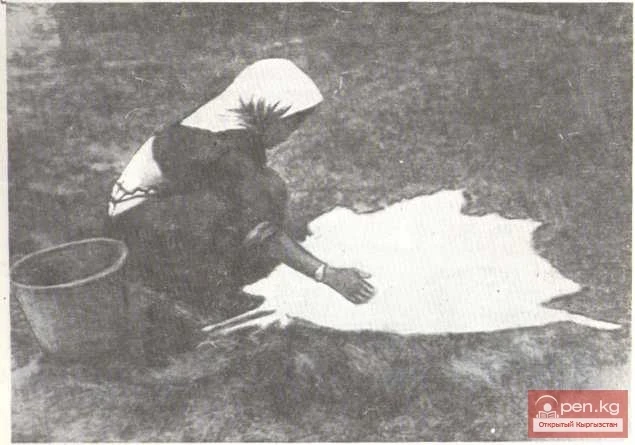
The Process of Sheepskin Tanning
Tanning sheepskin with ayran. Mid-19th century. The photograph is kept in the State Museum The...
No precipitation, warm during the day up to +24 — weather forecast for October 21
Weather forecast for Kyrgyzstan on October 21. According to Kyrgyzhydromet, no precipitation is...
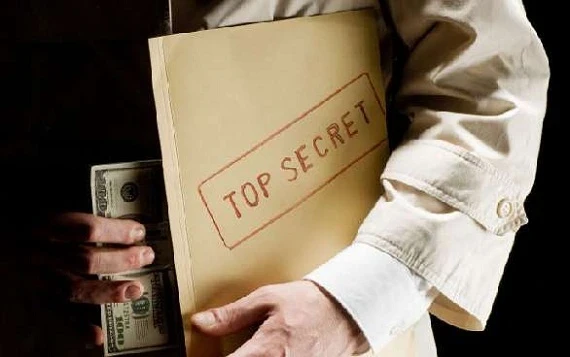
Beautiful Strangers, Fake Crypto Experts, and Startup Traps — The Times Reveals the Scale of Modern Espionage
Malvenon claims that this is not paranoia or a fabrication: a real "sex war," as...
In Turkey, a boat with migrants sank. Bodies of 14 people found.
In the southwest of Turkey, near the popular seaside resort of Bodrum, a tragedy occurred: 14...
Tesla will start producing fully autonomous two-seater Cybercabs
Tesla, a company based in the USA, plans to start production of its two-seater electric vehicles,...
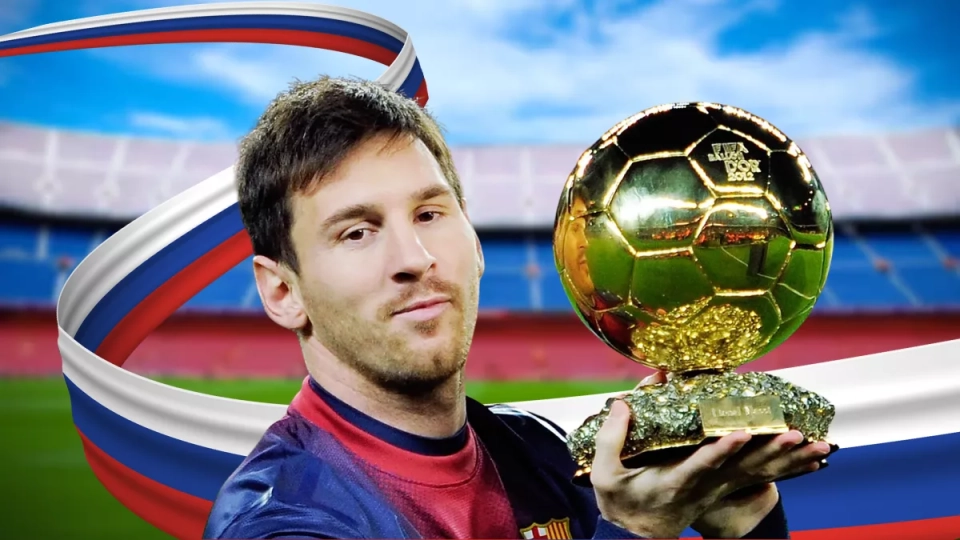
All of Messi's Golden Balls: How He Became the Greatest Footballer of Modern Times
When he received his first Ballon d'Or in 2009, it became a landmark moment. Many believed it...

The video about Kyrgyzstan at the "Expo-2015" in Milan has already gained over 30,000 views.
The video about Kyrgyzstan at the "Expo-2015" in Milan has gained over 30,000 views in...
In Bishkek, the air will warm up to +23…+25 degrees — weather forecast for October 24
Weather conditions in Kyrgyzstan on October 24. According to data from Kyrgyzhydromet, clear...
Rain and Wind Strengthening Expected in Kyrgyzstan. Weather Forecast for Next Week
Bishkek October 27, Monday The temperature at night will be +11...+13 °C, rain is expected. During...
Weather forecast in Kyrgyzstan for October 24: no precipitation
On October 24, clear weather without precipitation is expected in Kyrgyzstan. In the capital,...
A Kyrgyz Fisherman Went to the Indian Ocean to Catch a Shark: His Story
Arthur Sedov, a 28-year-old resident of Bishkek and organizer of fishing competitions for children...
Snow is expected in the mountainous areas — weather forecast for October 22
Weather forecast for Kyrgyzstan on October 22. According to information from Kyrgyzhydromet, no...
Game of Thrones 2. Who Will Enter the Next Parliament
Early elections for the Jogorku Kenesh are scheduled for November 30, 2025. Elected deputies will...

Putin confessed his love for one movie
In an interview on the "Russia 1" channel with host Pavel Zarubin, President Putin...
Life in the Regions: Kairgul Kozhogulova Raised Two Children Alone While Driving a Milk Truck for 15 Years
Kairgul Kozhogulova, 48 years old, from the village of Kyzyl-Suu in the Jeti-Oguz district of the...
The State National Security Committee returned 226 hectares of agricultural land in the Issyk-Ata district to state ownership.
- The State Committee for National Security (GKNB) has restored 226 hectares of agricultural land...
Trade War. The USA and China Agree on the Framework of a Potential Deal
This week, a meeting is expected between the presidents of the United States and China, during...
What will the weather be like in Bishkek on October 26?
Bishkek October 26, SundayAt night, the temperature will be +10...+12 °C, cloudy weather is...
Rapper P. Diddy was attacked with an attempt to slit his throat in prison
Sean Combs, known by the pseudonym P. Diddy, became a victim of an aggressive attack in his prison...
The police have put Ekaterina Bivol on the wanted list for her statements about Kyrgyz people.
The Bishkek police have put Ekaterina Bivol on the wanted list for making rude comments about the...
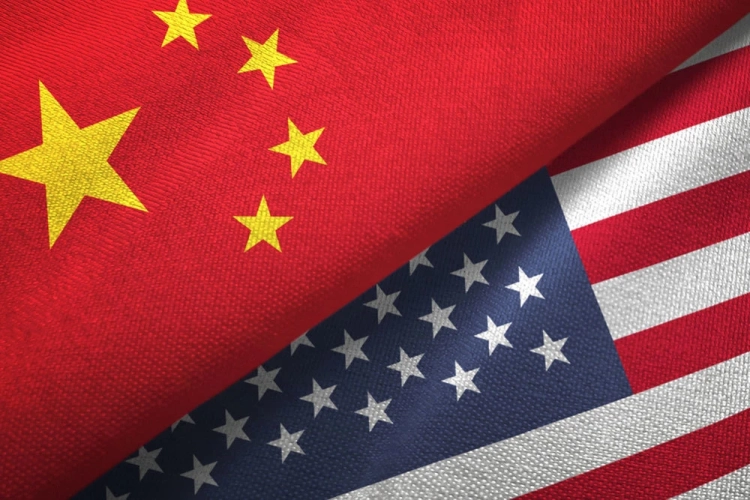
China accuses the US of "double standards" over the threat of imposing tariffs
A representative of the Chinese Ministry emphasized that if Trump decides to carry out his...
Fraudsters Created a Fake Video with the Head of the UPSM Press Service Using AI
A video has started circulating on social networks in Kyrgyzstan, in which Nursultan Muratbekov,...
Police found the body of a missing patient from the psychiatric clinic.
On October 26, the body of a patient from the psycho-neurological social hospital, who had been...

In Russia, they have taken on cargo transportation: Almost 7,000 trucks from China, traveling through Kazakhstan and Kyrgyzstan, have been stuck at the border with Russia for a month.
The main users of cargo transportation are marketplace sellers and small retailers. The cargo...
Weather forecast in Kyrgyzstan for the week: rain at the beginning, warming by the weekend
Kyrgyzhydromet has presented the weekly weather forecast for Kyrgyzstan. Throughout the next week,...

3-Day Hike in the Style of TOS
For the first time in Central Asia, within the framework of the "Theory of Constraints"...
